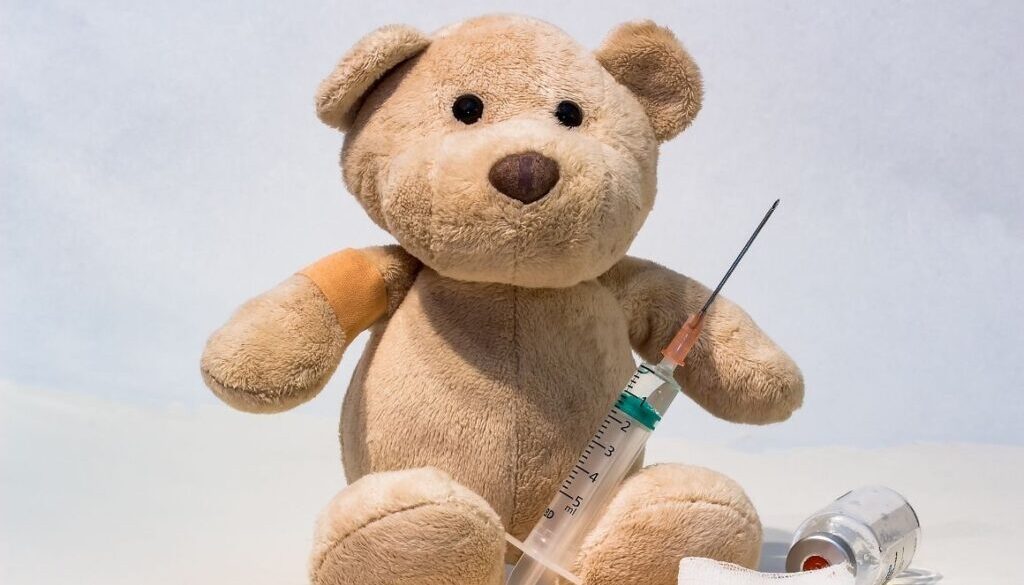How Brands Can Advance Vaccination Efforts Through Online Advocacy
As social distancing guidelines diminish and Covid-19 vaccines become increasingly available, the biggest obstacle left in tackling the pandemic is to advocate the benefits of vaccination to skeptical individuals. Many brands are viewing this obstacle as part of their corporate social responsibility, and are stepping up by utilizing public relations, particularly within social media, to promote the benefits and necessity of receiving the Covid-19 vaccine.
Corporate Social Responsibility (CSR)
Although life seems to be getting back to normal, the highly contagious Delta Covid-19 Variant has spread to 85 countries, including the United States. The variant is being seen among the unvaccinated, contributing to a 10% rise in daily Covid-19 cases to about 12,600 late last month.
As some individuals remain skeptical and have not yet gotten the Covid-19 vaccine, brands are realizing the power they hold in educating people on the benefits of the vaccine, as well as encouraging individuals to receive the vaccine. Smart brands are identifying this power as a perfect CSR opportunity as brands can have a significant impact on the vaccination conversation.
Social Media Impact
As the pandemic kept people apart, social media brought people together. Over the past year, people from all over the world have embarked on Twitter to talk about how Covid-19 has impacted their lives. This conversation has shifted into a debate over Covid-19 vaccinations. Between November 2020 and April 2021, #Covid19 was the most popular hashtag used at 33%, with the second most being #getvaccinated at 14%.
According to the Center for Countering Digital Hate, 65% of anti-vaccine misinformation comes from just 12 people on Facebook, Instagram, and Twitter, leading to the social media sites labeling misleading posts and banning individuals who repeatedly share false information. The vaccination conversations are already happening on social media, with the majority of posts encouraging vaccination.
However, there is a Covid-19 conversation exposure gap, meaning there is a group of people underexposed to vaccine-related tweets. This group uses Twitter for entertainment, and the main source of vaccine-related tweets on their timeline are from brands, not news outlets or politicians.
This is the perfect opportunity for popular brands, with thousands of followers, to use their large platforms and engage in the vaccination conversation through interactive, creative PR campaigns. Brands can reach those underexposed to the vaccination conversation, promote the benefits of the vaccine, and increase their publicity.
Bumble
Bumble, a popular dating app, launched a vaccination badge to add to users’ profiles who have had the COVID-19 vaccine. Bumble reported 30% of U.S.-based users believe the vaccine is essential and would not go on a date with someone who is not vaccinated.
Bumble has heavily advertised this new feature on all their socials, encouraging followers to get vaccinated, download Bumble, and add the vaccination badge through lighthearted posts such as “we think getting vaccinated is pretty hot!” Additionally, the app is giving out one free “Super Swipe” to users who add the vaccination badge to show their gratitude to users taking the safety of themselves and their matches seriously.
McDonald’s
McDonald’s partnered with Biden Administration to make access to information about Covid-19 vaccines easier for the millions of Americans who eat at McDonald’s every day. Starting in July, McDonald’s hot McCafé® cups and McDelivery® seal stickers will lead customers to vaccines.gov, where they can find information about the vaccine, and where to get one nearby.
McDonald’s uses the hashtag #WeCanDoThis to continue the conversation on Twitter, Facebook, and Instagram. McDonald’s encourages individuals to post what they learned about the vaccine and selfies with vaccinated stickers using the hashtag.
AXE Body Spray
At the end of June, Axe Body Spray launched the “Get Axeinated” Program, a program to help increase Covid-19 vaccine rates among young guys. AXE distributed free body spray kits for those vaccinated or those who intend to get vaccinated.
This campaign targeted Gen Z young men, so AXE partnered with Snapchat to expand the vaccination conversation as 69% of teens say they use Snapchat. When Snapchat users utilize the “axeination” lens on the app, they can go directly to the axeination website, where there is more information on the body spray kits and details on Covid-19 vaccines.
Budweiser
Budweiser launched a “Reunite with Buds” vaccination effort, incentivized by a free beer giveaway. Participants needed to upload proof of their vaccinations, such as a selfie with their vaccination sticker, to ABeerOnBud.com. The first 10,000 submissions were gifted $5 debit cards for their “first rounds” of beer.
The campaign was promoted on Instagram, Facebook, Twitter, and YouTube, encouraging followers to get vaccinated and enter the giveaway on all social platforms.
Conclusion
Social media is leading the vaccination conversation. Brands have the power to reach groups of people who are underexposed to Covid-19 vaccination information and can encourage those who are unvaccinated to take the steps to get protected. Other companies should follow in the footsteps of Bumble, McDonald’s, Axe, and Budweiser and create CSR campaigns that are creative, helpful, and impactful.
Tara Korch is an Account Coordinator at Flackable, an award-winning public relations agency representing financial and professional services brands nationwide. To learn more about Flackable, please visit mariaa191.sg-host.com. Follow Tara on Twitter at @KorchTara




